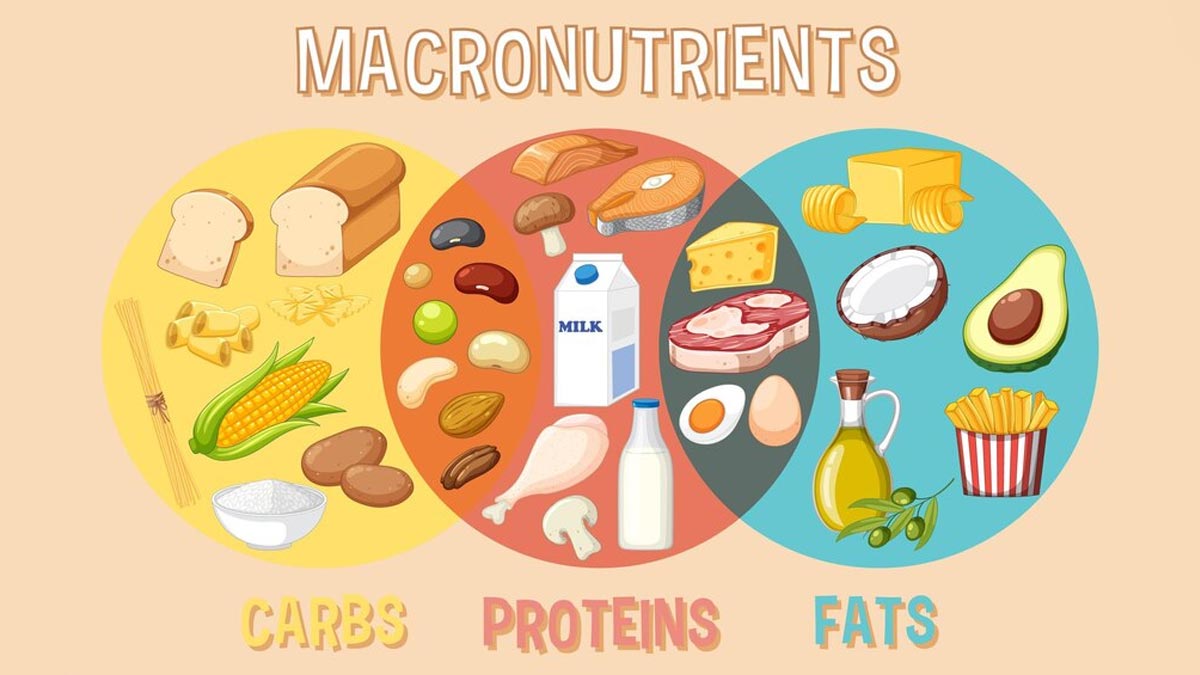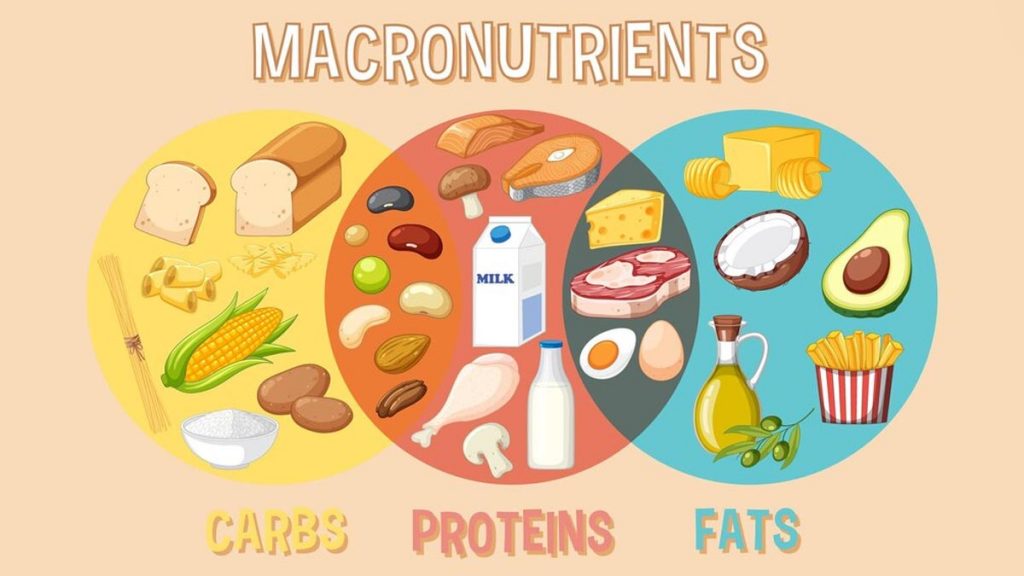Many of us have heard the terms protein, carbs, and fats thrown around in the world of nutrition, but how much do we really know about these essential macronutrients? In this guide, we will dive deep into the role that protein, carbs, and fats play in our diet, and how we can make informed decisions about our nutrition to fuel our bodies effectively. Get ready to become a macronutrient master as we break down the basics of protein, carbs, and fats.

Introduction: Understanding Macronutrients and Their Role in a Balanced Diet
In this comprehensive guide, we will delve into the fascinating world of macronutrients – protein, carbs, and fats – and explore their vital roles in maintaining a balanced diet. Understanding these essential nutrients is key to optimizing your health and well-being.
Protein:
- Known as the building blocks of life, protein plays a crucial role in the growth and repair of tissues in our bodies.
- Sources of protein include meat, fish, eggs, dairy, legumes, nuts, and seeds.
- Incorporating adequate protein into your diet can help you feel full, boost metabolism, and support muscle strength and development.
Carbohydrates:
- Carbs are the body’s primary source of energy, providing fuel for our daily activities and bodily functions.
- There are two types of carbohydrates: simple carbs (found in sweets and processed foods) and complex carbs (found in whole grains, fruits, and vegetables).
- Choosing complex carbs over simple carbs can help regulate blood sugar levels, improve digestion, and promote satiety.
Fats:
- Healthy fats are essential for brain function, hormone production, and nutrient absorption.
- Sources of healthy fats include avocados, olive oil, nuts, seeds, and fatty fish.
- Incorporating a balance of unsaturated fats (such as omega-3 and omega-6 fatty acids) into your diet can benefit your heart health and overall well-being.
By understanding the roles of protein, carbs, and fats in a balanced diet, you can make informed choices about the foods you consume and optimize your nutritional intake for a healthier lifestyle.
Benefits of Protein: The Building Blocks of Muscle and Essential for Body Function
Protein is a crucial macronutrient that plays a vital role in the growth and repair of tissues in our body. It is often referred to as the “building blocks of muscle” because it is essential for muscle development and maintenance. Including an adequate amount of protein in your diet can help support muscle growth, improve strength, and aid in recovery after exercise.
Additionally, protein is necessary for the proper functioning of our body. It helps regulate hormones, enzymes, and other essential chemicals that are responsible for various bodily processes. Consuming enough protein can also help maintain healthy hair, skin, and nails, as these structures are made up of protein.
When planning your meals, make sure to include a variety of protein sources such as lean meats, poultry, fish, eggs, dairy products, legumes, and nuts. Incorporating protein-rich foods into your diet can help you meet your daily protein requirements and reap the many benefits that this macronutrient has to offer.
Importance of Carbs: Fueling Your Body with Energy for Optimal Performance
Carbohydrates are one of the essential macronutrients that our bodies need to function properly. They are often associated with providing energy, and for good reason. When we consume carbs, our bodies break them down into glucose, which is then used as fuel for our cells. This is especially important for athletes and those who lead active lifestyles, as carbs are a primary source of energy that can help optimize performance.
In addition to providing energy, carbs also play a crucial role in supporting brain function. The brain relies heavily on glucose for fuel, so consuming an adequate amount of carbs is important for mental clarity and focus. Carbs are also important for muscle recovery and growth, making them an essential component of a well-rounded diet for those looking to build strength and endurance.
It’s important to note that not all carbs are created equal. Complex carbohydrates, found in whole grains, fruits, and vegetables, are a healthier option than simple carbohydrates like sugary snacks and refined grains. Complex carbs provide a more sustained release of energy and are packed with essential nutrients like fiber, vitamins, and minerals. By incorporating a variety of complex carbs into your diet, you can fuel your body with the energy it needs for optimal performance and overall well-being.
Navigating Fats: Types of Fats, Their Sources, and How to Include Them in Your Diet
Types of Fats:
There are three main types of fats: saturated fats, unsaturated fats, and trans fats. Saturated fats are typically solid at room temperature and are found in animal products like butter and cheese. Unsaturated fats are usually liquid at room temperature and can be found in nuts, seeds, and vegetable oils. Trans fats are artificial fats created through hydrogenation and are commonly found in processed foods like fried foods and baked goods.
Sources of Fats:
Fats can be found in a variety of foods, both from animal and plant sources. Some examples include:
- Avocados
- Salmon
- Nuts and seeds
- Olive oil
- Coconut oil
How to Include Fats in Your Diet:
Fats are an essential part of a balanced diet and can contribute to overall health when consumed in moderation. To include fats in your diet, try incorporating healthy fats like avocados or nuts into your salads, using olive oil for cooking, or enjoying a piece of fatty fish like salmon for dinner.
As you embark on your journey to understanding macronutrients, remember that balance is key. Each of these essential nutrients plays a crucial role in fueling your body and maintaining overall well-being. By paying attention to your protein, carbs, and fats intake, you can optimize your health and achieve your wellness goals. So go forth armed with knowledge and make informed choices that nourish your body and mind. Here’s to a healthier, happier you!


